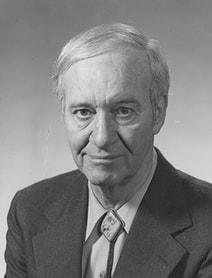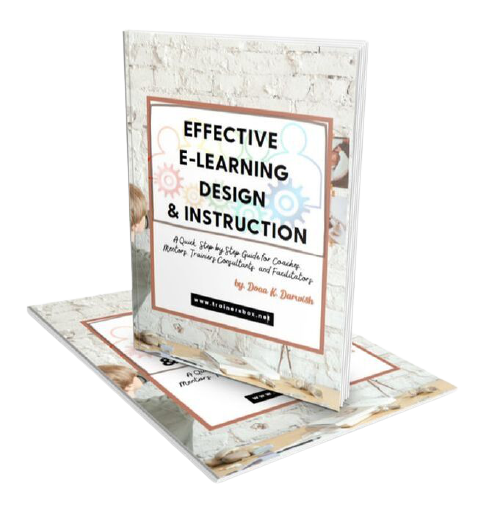WHAT IS ANDRAGOGY: THE ADULT LEARNING THEORY

Andragogy refers to a theory of adult learning that details some of the ways in which adults learn differently than children. For example, adults tend to be more self-directed, internally motivated, and ready to learn. Some of the concepts that work for adult learning in Andragogy are quite accepted, while others are very controversial because they overlap with pedagogy (the child-focused teaching approach). Research proved that child versus adult learning is pretty much a spectrum: For example some kids are premature and some adults are immature where training is concerned. But as a general rule, adults will need a less theoretical and a more hands-on, practical approach.
There are five basic assumptions about the characteristics of adult learners:
1. Self -Direction: As a person matures their self concept moves from one of being dependent on others to being independent or self-dependent. Adult learners develop a well-established sense of 'self'. In childhood, we follow our parents and siblings. As teenagers, we take a leap back from family and start getting influenced by our friends and peer groups. It isn’t until adulthood that we pick and choose what we want from these two stages. We form a complete identity and do have a clear sense of who we are and what we want. We know we are unique beings with unique needs than those around us. This affects our decisions and actions.
There are five basic assumptions about the characteristics of adult learners:
1. Self -Direction: As a person matures their self concept moves from one of being dependent on others to being independent or self-dependent. Adult learners develop a well-established sense of 'self'. In childhood, we follow our parents and siblings. As teenagers, we take a leap back from family and start getting influenced by our friends and peer groups. It isn’t until adulthood that we pick and choose what we want from these two stages. We form a complete identity and do have a clear sense of who we are and what we want. We know we are unique beings with unique needs than those around us. This affects our decisions and actions.
2. Using Past Experience: Adult learners process information based on filtering and reasoning to select which kind of knowledge will work best for them according to their past experiences. Past experiences play a critical role in the adult learning process. When kids go to school they will have a good deal of knowledge, but it will not be necessarily academic. In pre-school, they hardly know how to share and express themselves so there's is a lot of space for fresh data and neuro-linguistic programming to sink in. Adults, on the other hand, have a ton of experience and pre-stored knowledge and mental programming, both academic and about life in general. To teach them effectively, you have to click with what they already know. When they make sense of what is being presented they will open their minds to accept new concepts. This is crucial, because if your new data clashes with their existing knowledge base, they will not reciprocate in the learning process. You have to consciously weave into into their living experiences in order to get a "pass" in becoming an active part of their thought process.
3. Relative Readiness to Learn: Adults' readiness to learn will vary depending on the situation they are in. They will consider how far they will benefit or what would they possibly lose with or without this information they are about to learn.
4. Orientation to Learning: An adult will be ready to learn as soon as he perceives this learning will solve a problem of interest.
5. Motivation to Learn: Mature people could possibly be willing to learn because they are motivated not necessarily just by physical things but rather by matters like, self actualization, and intellectual growth too.
There are 4 rules that need to be applied for adult learning to be effective:
3. Relative Readiness to Learn: Adults' readiness to learn will vary depending on the situation they are in. They will consider how far they will benefit or what would they possibly lose with or without this information they are about to learn.
4. Orientation to Learning: An adult will be ready to learn as soon as he perceives this learning will solve a problem of interest.
5. Motivation to Learn: Mature people could possibly be willing to learn because they are motivated not necessarily just by physical things but rather by matters like, self actualization, and intellectual growth too.
There are 4 rules that need to be applied for adult learning to be effective:
- Adults need to be involved in the planning and evaluation of their training, coaching or instruction; and this is a core principle. In a training context, this means they want 'a say' in their eLearning courses. Adults require a good sense of autonomy in learning. Otherwise, they soon lose interest. In addition, adult learners should always play a part in developing their eLearning content, actively evaluate their performance, and co-plan in their training criteria. Tutors needs to conduct surveys to get their feedback, then invite them to sit through a test to identify gaps where they still need progress to happen. Adult learners also need to be able to personalize their learning paths and choose relevant eLearning activities that they like. They also need to have a choice in accessing resources that will allow them to immediately apply what they learned and address their individual pain points.
- Adults build experience based on making mistakes and start stacking their lessons learned, this is called experiential learning. Mistakes are the best teacher because adults are encouraged to explore the subject matter firsthand and learn from their mistakes. An example on this would be watching a video where the boss downplays a highly skilled employee and then ask participants to pinpoint what are the wrong words that this boss had used to convey a negative message to the employee, or one can also ask participant to them to copy any bad body language that should be avoided, as an example. This way they will relate to how their words, actions or behaviors will lead to real consequences. In effect, they are less likely to make those mistakes in the workplace and develop their experiential knowledge.
- In order for any adult to get interested in any subject matter, they need to know how it will directly impact their job or personal life. In other words "What is the difference that will make a difference?" (Quoted by Graham Norris, Creator of The RESOLVE Model) Adults want to know how a coaching or training will solve a particular problem, regardless of how impressive their coach is or how popular program is. Whether they adults paid for this eLearning course themselves or were sponsored by their company, adult learners are still aware they are in the session by choice, and seek to find value in such a way it would help them comprehend the big picture.
- Adults will relate to online tutors and eLearning course designers as peers and they rarely hold them in awe or derision like kids do with their teachers.












